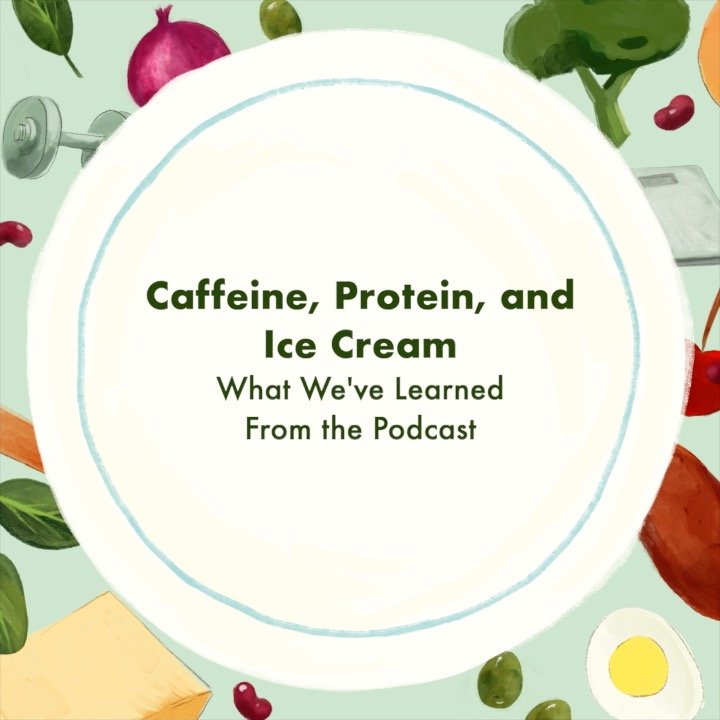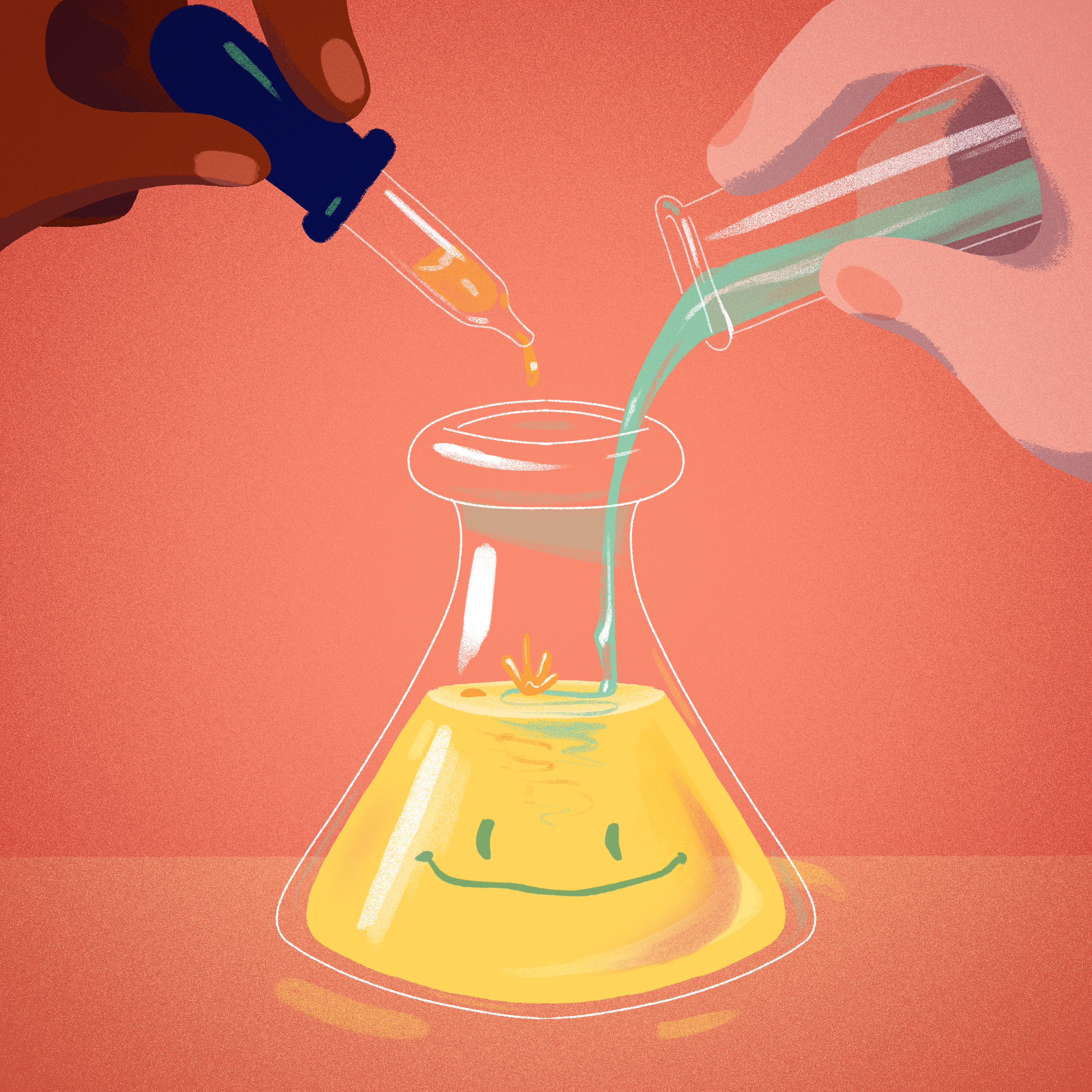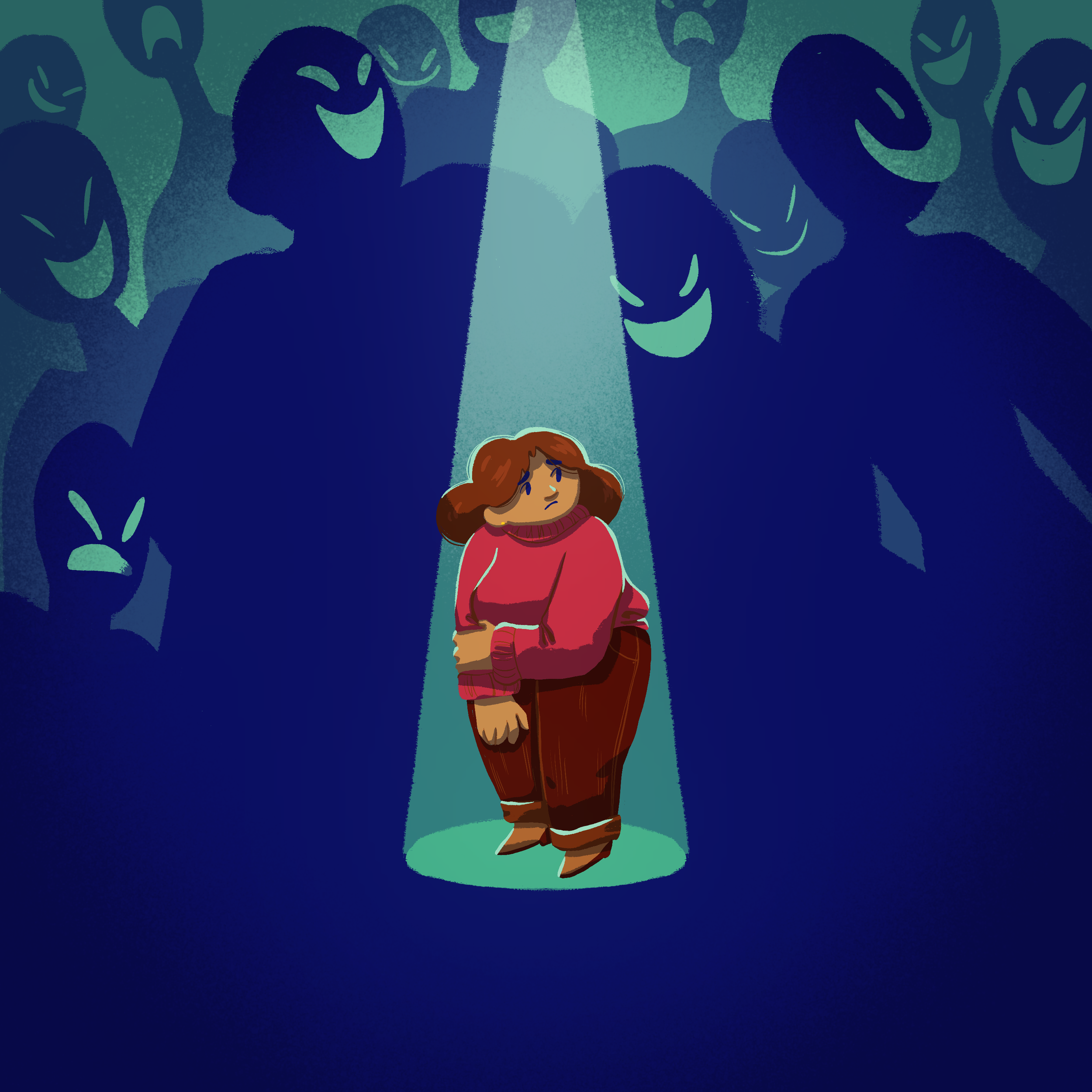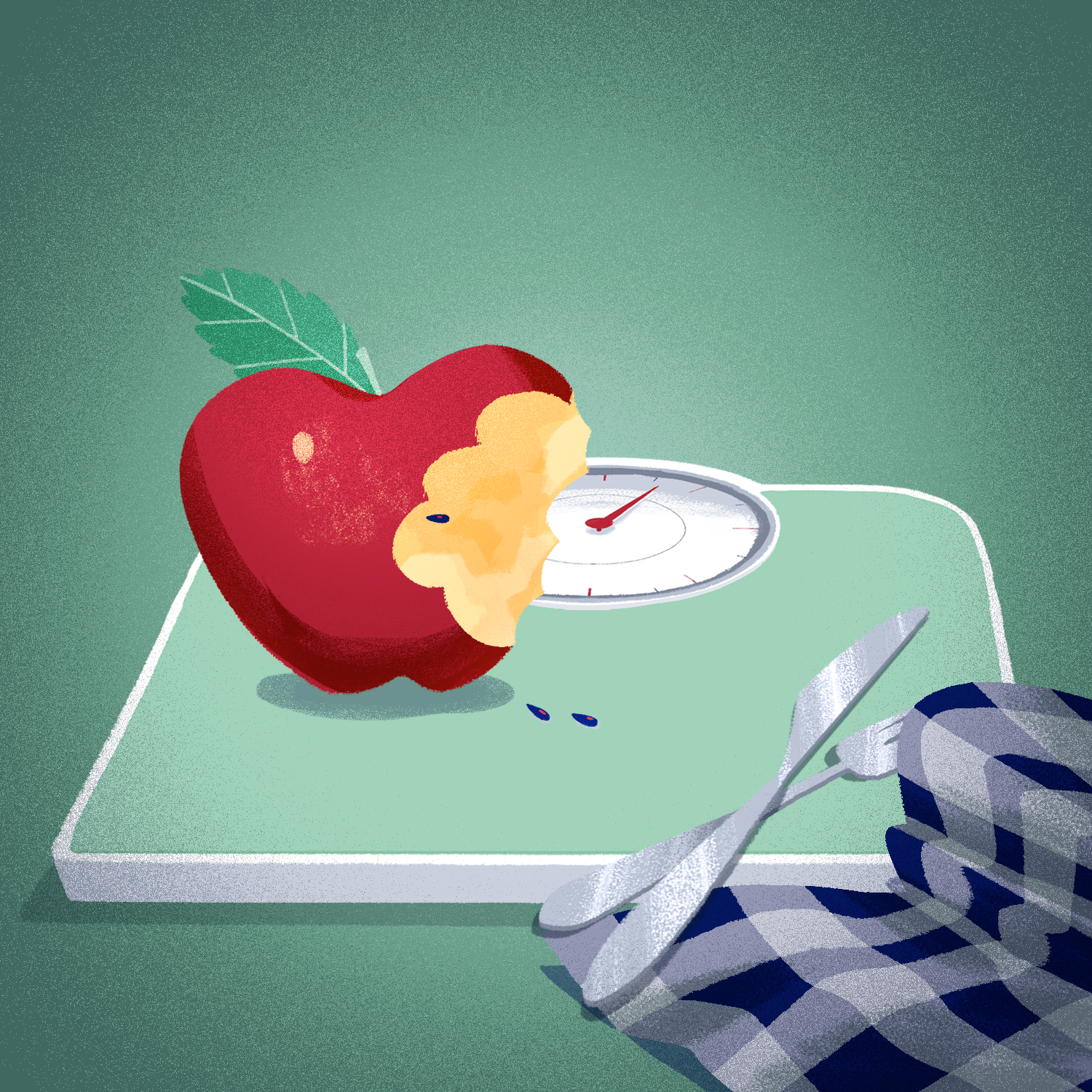Episodes
You Probably Have Insomnia... Here's What to Do About It
You probably have insomnia… and you probably don’t even know it. In this episode, we dive into one of the most relatable struggles out there: not being able to fall asleep, stay asleep, or stop stressing about sleep. We’re joined by Dr. Michelle Jonelis, a sleep medicine specialist who explains why your sleep tracker might be lying to you, why optimizing your sleep setup might backfire, and what actually works to fix your sleep (spoiler: it’s not melatonin). Dr. Jonelis breaks down the gold-standard treatment for insomnia and why so many of us are going about it the wrong way. If your brain won’t shut off at night, this one’s for you—or at least the 75% of us in the same boat.
The Science of Increasing Your Life Satisfaction
In this episode, we dive into the fascinating world of positive psychology—not just thinking happy thoughts, but the actual science of what makes life worth living! We’re joined by Dr. Liana Lianov, founder of the Global Positive Health Institute, to explore how boosting your happiness, resilience, and sense of purpose can literally improve your health. We also take the five-question test that reveals how satisfied you are with your life—spoiler: one of us crushed it, and one of us… did not. Plus, we break down simple, science-backed ways to bring more joy, gratitude, and meaning into your daily routine (even if you're stressed and busy). If you’ve ever wondered how to thrive—not just survive—this episode is for you!
Eat This for a Healthier, Happier Brain
Today, we’re talking about food and your brain. Sure, we’ve all heard how food affects your weight, your energy, and your gut, but what about your brain? It turns out, the connection between what we eat and how our brain functions is pretty incredible—and maybe even life-changing.
We’re joined by Dr. Uma Naidoo, Harvard psychiatrist and author of This Is Your Brain on Food, to explore the foods that boost brain health, improve mood, and sharpen cognition. From combating anxiety and depression to supporting focus and memory, we’re breaking down the science of what to eat—and what to avoid—for a healthier, happier brain.
If You're Feeling Tired and Distracted, Listen to This
In this episode, we're tackling burnout and attention overload with Professor Gloria Mark from UC Irvine. Ever feel like you’re drowning in distractions—from Slack messages and emails to the endless scroll of social media? Professor Mark helps us break down the science behind why our focus is constantly slipping and what’s driving us to the brink of exhaustion. We dig into everything from the myth of multitasking to why our attention spans are shorter than ever. Plus, we get some practical strategies to reclaim your day, your mental clarity, and your energy. Don't miss this one—it's time to reset, refocus, and finally take control.
When Do "Healthy" Habits Become Unhealthy?
In this episode, we’re exploring a question we don’t ask enough: when does good health advice go too far? We break down the risks of taking advice to the extreme, whether it’s about diet, fitness, or everyday wellness habits. We also tackle the stress of trying to follow health trends that may be doing more harm than good. If you’ve ever wondered when “healthy” starts to feel unhealthy, this episode is for you!
How Your Childhood Impacts Dating, Relationships, and More
In this episode, we’re tackling an often overlooked aspect of health: relationships. We sit down with Dr. Robert Waldinger, Director of the Harvard Study of Adult Development, to explore how your childhood shapes your adult relationships. From romance to friendships to work, we break down how attachment styles affect every connection. We dive into the origins of attachment theory, the latest research, and practical tips to help you move towards a more secure style. Whether you’re dating, in a relationship, or just looking to improve your connections, this episode is packed with insights you won’t want to miss.
Caffeine, Protein, and Ice Cream: What We've Learned from the Podcast
We've been hosting this podcast for a long time. In over eighty episodes with over sixty experts, we've learned A LOT. In this episode, we wanted to discuss what we've learned from all our years of doing Food We Need to Talk. In this podcast, we focus specifically on diet. What has stuck with us over the years? How have our habits around caffeine, ice cream, Starbucks, and protein changed? Stay tuned to find out.
Why Am I Always Tired?
Today, we talk to Professor Frank Scheer from Harvard University all about one of the most important things that we do every day: sleep. For many of us, sleep may seem like a waste of time or an inconvenience. In fact, sleep is one of the most vital ways to maintain our health. Today, we learn why sleep quality is just as important as sleep quantity. What are the different phases of sleep and their functions? How do caffeine, alcohol, and sleeping pills affect our slumber? Are alarms good or bad? Should we be taking naps? If you feel tired all day, or can't seem to get a good night's rest, this is the episode for you!
Budget Ozempic, Covid's Effects on Eating Disorders, and More
Today, in honor of Eating Disorders Awareness Week, we speak to Professor Bryn Austin. Our conversation covers a wide variety of topics: How the pandemic and social media have affected rates of eating disorders, how pharmaceutical companies are unethically marketing the new weight loss medications, the dangers of budget Ozempic, inequalities in the treatment and recognition of eating disorders, and how you, yes YOU, can create change by promoting public policies that protect our kids from harmful dietary supplements.
Misconceptions About Eating Disorders, Orthorexia, and More
In today’s episode, we talk all things eating disorders with Dr. Evelyna Kambanis from Massachusetts General Hospital. How common are each of the eating disorders? What are some of the most common misconceptions surrounding them? What is orthorexia? How does social media affect EDs? And what are the best treatments? We cover all this and more on today’s episode in honor of the upcoming National Eating Disorders Awareness week.
Is The Food You're Eating Making You Depressed?
This episode is dedicated to the sexiest macronutrient of the time: PROTEIN. We talk to the king of protein research himself, Professor Stu Phillips from McMaster University about all the most common questions we get about protein. How much do you need? Should you spread it out throughout the day? Do you need a protein supplement? Is animal or vegan protein better? What's the deal with collagen, and more. Find out how a higher protein diet impacts your overall health, your weight, and your metabolism. (Plus, how to not waste your money on things that don't work.)
The Truth About Alcohol (An Update)
This is an update to our last episode on alcohol. New research has been accumulating suggesting that perhaps even a glass a day of alcohol is not beneficial. For instance, the new Canadian guidelines say that zero alcohol is the safest amount of alcohol. Today, we revisit the topic with Professor Mariann Piano, Senior Associate Dean for Research, Postdoctoral Fellowship Director at Vanderbilt University.
The Science of a Happy and Meaningful Life ft. Dacher Keltner
If you’ve ever wondered what science has to tell us about being more fulfilled, feeling more joy, and living a good life, this is the episode for you. Today, we talk to happiness researcher and professor Dacher Keltner, from the University of California Berkeley and founding director of the Greater Good Science Center. How much money makes us happy? Is it harder to be happier today than it used to be? And what can we do to live a more meaningful life?
Holiday Food, Guilt, and Stress: How to *Actually* Have a Happy Holiday
The holidays are supposed to be the happiest time of the year, and yet, many people would agree "jingle hell" may be more appropriate than "jingle bell." Delicious treats are everywhere, and yet one wonders, is there such a thing as too many cookies? Family is coming together, including that one uncle who always makes some rude comment about your weight, And a whole smorgasbord of feelings--guilt, shame, anxiety, loneliness, and more--are brought to the table along with the pies and roasts. On this episode: how to navigate all things holiday food, family, and emotions to *actually* make it the happiest season of all!
The Health Effects of Weight Stigma
Weight stigma, or weight-based discrimination, is a form of stigma that is widely accepted and has been rising over the past few decades. People think that being mistreated because of your body shape or weight is deserved because a person's weight is "their fault." Some even think that "fat shaming" is a way to help people "change" and "become healthier." Today, we discuss the detrimental physical and mental health effects of weight stigma, health effects that are often worse than the documented effects of excess weight. Our guest is psychologist Christine Emmer.

















